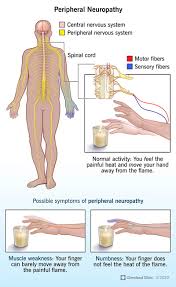Introduction
Neuropathic pain is a chronic condition caused by nerve damage or dysfunction. It often results in burning, tingling, or shooting pain, which can significantly affect daily life. Treating neuropathic pain requires a comprehensive approach, combining medications, therapies, and lifestyle modifications. In this guide, we will explore seven effective treatments that can help manage neuropathic pain and improve your quality of life.
1. Medications for Neuropathic Pain Relief
Pharmaceutical treatments play a key role in managing neuropathic pain. Doctors often prescribe specific medications that target nerve-related discomfort.
a) Anticonvulsants: The First-Line Treatment
Anticonvulsants are commonly used to treat nerve pain by stabilizing overactive nerve signals. Pregalin 50mg is one such medication that effectively reduces neuropathic pain. It works by calming overactive nerves, providing relief from symptoms like burning and tingling sensations. Pregalin 50mg is particularly effective for conditions like diabetic neuropathy, postherpetic neuralgia, and fibromyalgia.
b) Antidepressants for Nerve Pain
Certain antidepressants, such as tricyclic antidepressants (TCAs) and serotonin-norepinephrine reuptake inhibitors (SNRIs), are effective in reducing neuropathic pain. These medications alter chemical messengers in the brain, blocking pain signals.
2. Topical Treatments for Localized Relief
For individuals with mild to moderate neuropathic pain, topical treatments can provide targeted relief.
- Capsaicin Cream: This cream, derived from chili peppers, reduces the pain signal intensity by depleting substance P, a pain-transmitting chemical.
- Lidocaine Patches: These patches numb the affected area, offering short-term relief.
3. Physical Therapy and Exercise
Physical therapy is an effective, non-invasive approach to managing neuropathic pain. Therapists use techniques such as:
- Stretching and Strengthening Exercises: These exercises improve flexibility and reduce nerve compression.
- Transcutaneous Electrical Nerve Stimulation (TENS): This therapy uses low-voltage electrical currents to interrupt pain signals, providing temporary relief.
4. Lifestyle Modifications for Pain Management
Simple lifestyle changes can significantly reduce neuropathic pain.
- Diet and Nutrition: Eating a balanced diet with anti-inflammatory foods (e.g., omega-3-rich fish, nuts, and leafy greens) can reduce nerve inflammation.
- Regular Exercise: Low-impact activities, such as walking or swimming, enhance circulation and reduce stiffness, minimizing pain.
- Stress Management: Techniques like yoga, meditation, and deep breathing exercises can alleviate stress, which may worsen nerve pain.
5. Nerve Blocks and Injections
For severe neuropathic pain, nerve blocks or injections may offer relief.
- Steroid Injections: These reduce inflammation around the nerves, providing temporary but effective relief.
- Nerve Blocks: These involve injecting anesthetic agents around specific nerves to prevent pain signals from reaching the brain.
6. Alternative Therapies for Neuropathic Pain
Complementary treatments are gaining popularity for managing chronic pain conditions.
- Acupuncture: This ancient Chinese practice involves inserting thin needles into specific points to reduce pain and promote healing.
- Massage Therapy: Regular massages improve circulation and reduce muscle tension, offering relief from nerve pain.
- Herbal Supplements: Some herbal remedies, such as turmeric and ginger, have anti-inflammatory properties that may ease neuropathic pain.
7. Cognitive Behavioral Therapy (CBT)
CBT is a psychological treatment that helps patients cope with chronic pain. It focuses on altering negative thought patterns and developing healthy coping strategies. Many patients with neuropathic pain benefit from CBT by reducing their emotional response to pain, making the condition more manageable.
✅ Conclusion
Managing neuropathic pain requires a multi-faceted approach. From medications like Pregalin 50mg to physical therapy and alternative treatments, patients have various options to alleviate their discomfort. By combining these strategies and making lifestyle adjustments, individuals with neuropathic pain can experience significant relief and enjoy an improved quality of life.
 WhatsApp Us Now
WhatsApp Us Now






